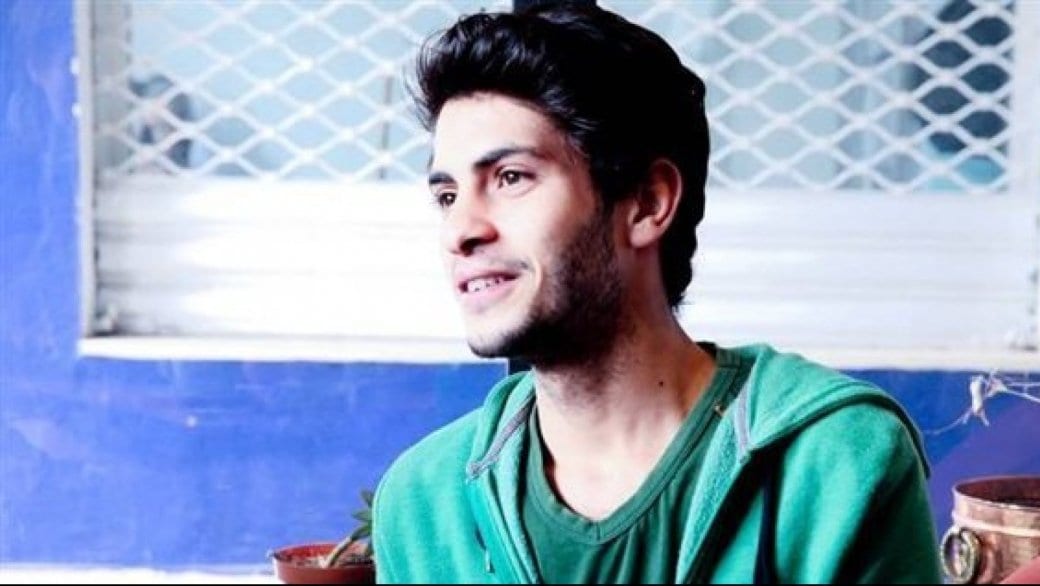A Tunisian LGBT activist wants the Canadian government to change its visa policy after he was refused entry to sit on the Montreal panel that sponsored him.
“It’s unfortunate because Canada is a country of human rights,” Ramy Ayari tells Daily Xtra in a phone call from Tunis. “I wanted to come and ask for support from the Canadian LGBT community and those of Tunisian origin.”
The 23-year-old activist founded the group Without Restrictions two years ago, offering safety training for queer Tunisians and housing support for those kicked out of their family homes.
After an LGBT activist appeared on a popular Tunisian TV show in April, multiple shops posted “forbidden to homosexuals” signs on their doors. Human rights groups say the situation for LGBT Tunisians has worsened since the Arab Spring uprising five years ago, with uninvestigated violence and forced anal tests used to prosecute men for sodomy.
“The same day I was denied a visa I was beat up by six homophobes. The next morning, when I woke up, I had a message from the cop threatening me, saying ‘I’m going to kill you; I’ll throw you from the top of a building,’ Ayari says.
A Montreal university held a panel on May 9, 2016, on Tunisia’s civil society, with Ayari as the featured speaker. But instead of attending in person, Ayari appeared over Skype.
Ayari says he was denied a visa because, like almost 40 percent of Tunisian youth, he doesn’t have a stable job. He suspects officials feared he would try to claim refugee status.
In the visa office’s May 1 decision, which Ayari showed to Daily Xtra, officials note Ayari’s lack of travel history, lack of property ownership and limited “employment prospects in your country of residence.”
The four-page letter is a checkbox list of reasons to deny a visa; none of them explicitly mention the possibility an applicant would claim asylum in Canada. The immigration department wouldn’t speak to Ayari’s case, citing privacy regulations.
François Daoust, who organized the panel, says he was shocked to hear the news.
“It was a huge disappointment, because it was a rare chance to educate our communities and all of society about what’s happening in Tunisia,” says Daoust, who is a senior researcher with the Université du Québec à Montréal’s UNESCO philosophy institute.
Before Ayari applied for a visa, Daoust had various LGBT groups send letters of support to the immigration minister, insisting they would cover all of his travel fees in the hopes of avoiding any visa issues.
“This is a substantive problem,” Daoust says. In 2014, weeks ahead of a human rights conference during WorldPride in Toronto, Canada refused visitor visas for 10 invited Ugandan activists over similar concerns, though at least five successfully re-applied after intense media coverage.
“We need to have a debate on this at the national level, because this policy is against the government’s general stance [on immigration],” Daoust says, adding that he hopes Prime Minister Justin Trudeau implements some sort of change before attending Toronto’s Pride parade on July 3, 2016.
Immigration Minister John McCallum tells Daily Xtra the visa system is not perfect, but wouldn’t say whether it needs to be changed.
“People are sometimes turned down for fear that they won’t return. I think sometimes that occurs when perhaps it should not occur, and my office looks into many such cases. But I can’t comment on that specific case, but I acknowledge that there’s still work to do on that issue in general,” McCallum said on May 11 outside the House of Commons.
NDP MP Hélène Laverdière has asked McCallum to look into Ayari’s file, as Quebec groups have told her they’re interested in inviting him to future events in Canada.
Ayari says his visa denial is ironic, given that Tunisian singer Walid Ettounsi is coming to Montreal for a concert later this month, despite local groups rallying against him. Ettounsi called homosexuality “shameful” during a recent television appearance.
Lebanese singer Mohamad Eskandar dropped anti-gay songs from his 2015 Canadian tour after groups unsuccessfully pushed Canada to deny him a visa. Jamaican dancehall artist Sizzla entered Canada in 2004 and 2006 despite telling crowds to “kill them . . . gay men have to die.”
Ayari says that in spite of all the challenges in Tunisia, he’s optimistic.
“More and more people are coming out and fighting for their rights. After the [2011] revolution there wasn’t much activism but now there are organizations and activists, and we have the support of civil society and even political parties.”
Editor’s note, May 13, 2016: A previous version of this story incorrectly spelled François Daoust’s last name.

 Why you can trust Xtra
Why you can trust Xtra


